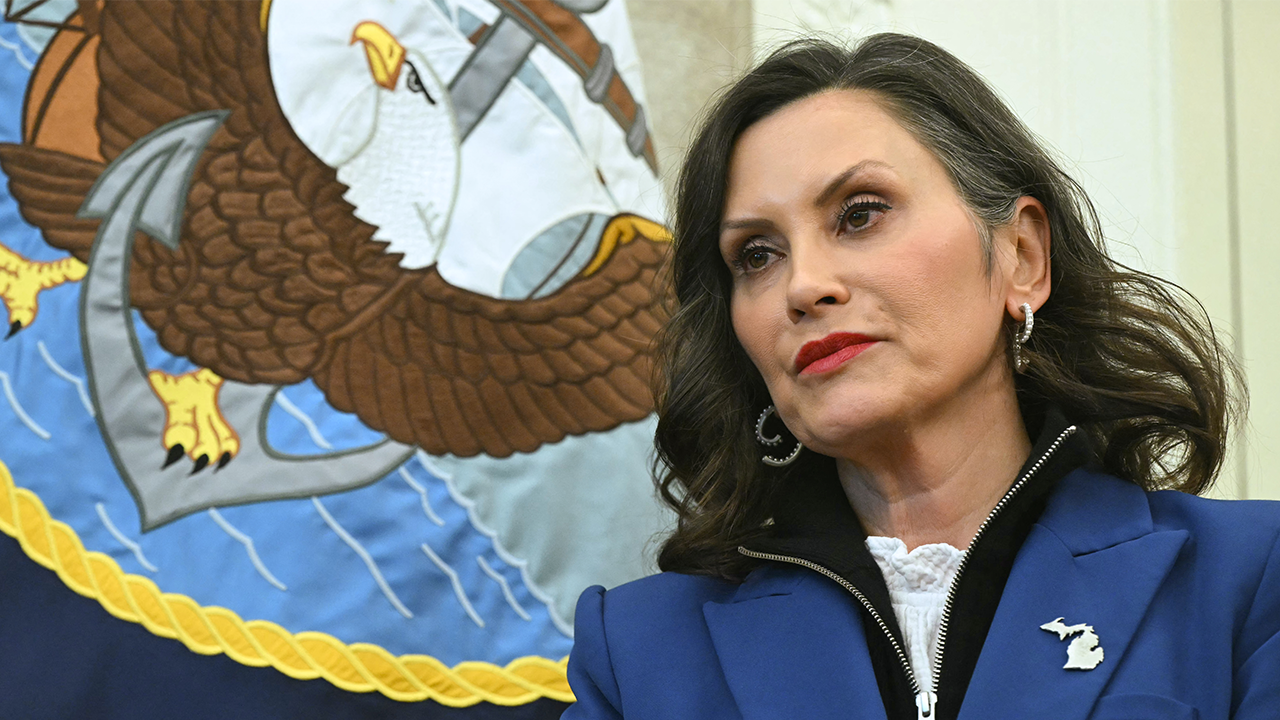Michigan Gov. Gretchen Whitmer bucks Democrats responding to Trump’s tariffs

Michigan Governor Gretchen Whitmer made headlines this week as she broke ranks with her fellow Democrats by engaging in dialogue with President Donald Trump during a visit to Washington. While many Democratic governors have been vocal in their opposition to Trump’s policies, Whitmer’s willingness to work with the president has sparked speculation about her 2028 presidential aspirations.
Despite the backlash from her party, Whitmer’s diplomatic approach to Trump has been seen as crucial in delivering for Michigan, especially in navigating the uncertainty surrounding the president’s tariff deals. However, experts warn that getting too cozy with Trump could jeopardize Whitmer’s chances of becoming a top-tier presidential candidate in 2028.
Democratic strategist Brad Bannon emphasized the importance of being critical of Trump in the current political climate, stating that Democratic primary voters have little patience for nuanced discussions about the president. Whitmer’s interactions with Trump put her in a delicate position as she seeks to balance bipartisan cooperation with the need to appeal to Democratic voters.
In contrast to Whitmer’s approach, other potential 2028 presidential candidates like governors Josh Shapiro, Andy Beshear, and Gavin Newsom have taken a more confrontational stance towards Trump. Newsom, in particular, has made efforts to engage with conservatives and Trump allies in an attempt to demonstrate his openness to criticism and debate.
During her visit to Washington, Whitmer carefully criticized Trump’s tariffs while also acknowledging his motivations and agreeing with his call to prioritize American manufacturing. This approach seemed to align with a broader strategy among Democratic governors to work with anyone in order to deliver results for their states while also standing up against harmful policies.
Despite facing criticism from her own party, Whitmer remained steadfast in her commitment to representing the interests of Michigan residents, regardless of who is in the White House. She emphasized the importance of showing up and fighting for her constituents, even if it means facing opposition from political adversaries.
Whitmer’s willingness to engage with Trump has not gone unnoticed, with the president himself praising her as an “excellent job” and a “very good person.” While this may have positive implications for Whitmer’s leadership in Michigan, it remains to be seen how her interactions with Trump will impact her political ambitions on a national scale.
As Whitmer continues to navigate the complex dynamics of bipartisan cooperation and party loyalty, her actions will be closely scrutinized by both supporters and critics. Whether she emerges as a viable contender for the Democratic presidential nomination in 2028 will depend on her ability to strike a balance between working with Trump and holding him accountable for his policies.




